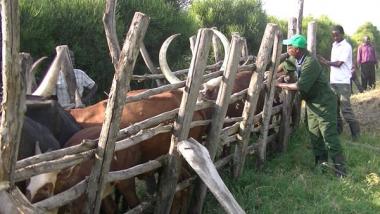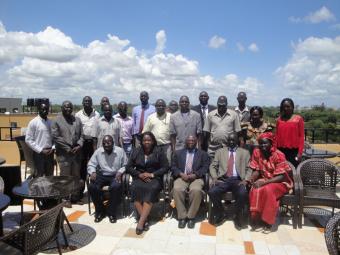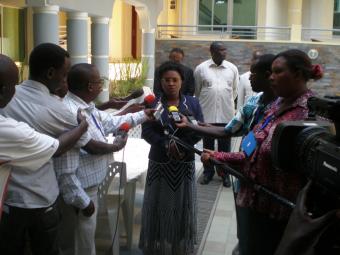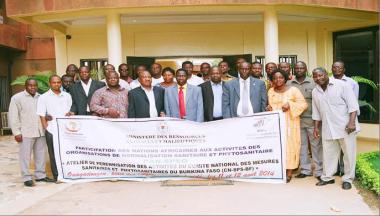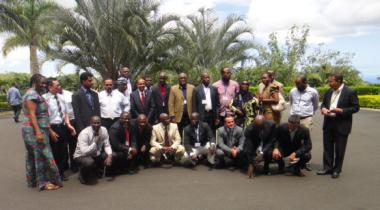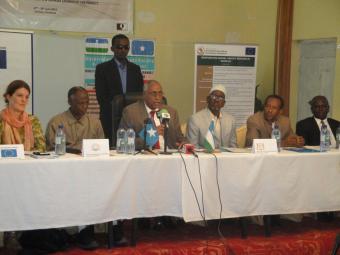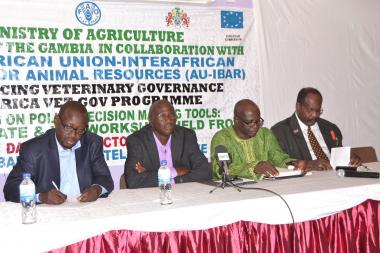
A regional webinar entitled "safe food: a critical ingredient in combating/ending malnutrition" was co-hosted on 23rd February 2023, by the African Union Commission, the World Health Organization, the CCAFRICA, the Food and Agriculture Organization of the United Nations, and the World Food Programme. The event was aimed at national and subnational (regional, provincial, and municipal) policymakers and programme administrators concerned with food safety and nutrition.
The webinar's objective was to promote the necessity of enhanced food safety in order to attain nutrition goals and put an end to all forms of malnutrition. The online gathering included presentations with audience Q&A. Harmonization of food standards and regulations; Recommendations for drafting harmonised food safety laws for the CCAFRICA region; Question and Answer Sessions on Country Examples of Integrated Food Safety and Nutrition Interventions in Cote d'Ivoire, The Gambia, and Kenya. AU-IBAR was represented at the meeting by Mr. John Oppong-Otoo, who moderated the question-and-answer sessions.
Dr. Luz Unit Head, Multisectoral Action in Food Systems (AFS) Department of Nutrition and Food Safety, World Health Organization, Geneva, delivered the keynote lecture, which focused on the critical importance of food safety in combating malnutrition.
More than ever before, the African Union Commission and the World Health Organization (WHO), in collaboration with intersectoral partners, are dedicated to assisting Member States in setting priorities, developing plans, putting plans into action, monitoring progress, and assessing results in order to further improve food safety systems. As part of its mission to improve health and well-being on the continent, they are also dedicated to advocating for the incorporation of food safety and nutrition into interventions targeting food systems.
Consuming only food that is guaranteed to be free of harmful substances is crucial for maintaining good health. To achieve the goals of the Malabo Declaration and the vision of Agenda 2063, and to protect the health of the African population, it is essential to take steps to improve food safety. In Africa alone, it is estimated that 91 million people become ill each year due to eating tainted food because it includes hazardous germs, viruses, parasites, or chemical chemicals. Certain food-borne diseases can cause lifelong impairment or death, and these conditions disproportionately affect infants, young children, pregnant women, the elderly, and people with underlying disorders. Research have shown that food-borne illnesses kill more children and adults in Africa than everywhere else in the world. Read more
In 2019, the African Union, the Food and Agriculture Organization of the United Nations (FAO), and the World Health Organization (WHO) held the first International Food Safety Conference in Addis Ababa. This conference established priorities to realise the critical role of enhancing food safety in achieving the 2023 SDG agenda, including the need to better integrate food safety into national and regional policies to ensure sustained political commitment to promote safe and diverse healthy diets. Learn more here
Picture: @Sosland Publishing, Meat + Poultry

